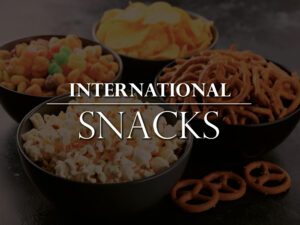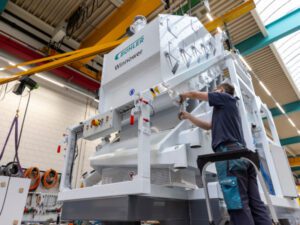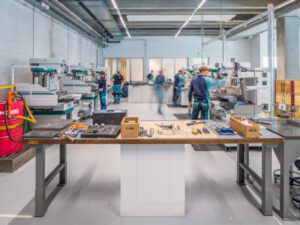Nestlé UK and Ireland and Cargill have launched their latest regenerative agriculture initiative which will assess whether cocoa shells from a confectionery site in York could be used to create a low carbon fertiliser.
This is not the first exploration of how cocoa shells can be harnessed to greater a more sustainable supply chain; in July olam food ingredients (ofi) announced that two circular biomass boilers fuelled by cocoa shells, a by-product of the production process, were now in operation at its processing factories in the Netherlands.
The two-year trial Nestlé and Cargill are conducting is to evaluate the fertiliser’s performance on crop production, soil health and greenhouse gas (GHG) emissons reduction. If the trial is successful, up to 7000 tonnes of low carbon fertiliser could be produced and offered to farmers in Nestlé’s UK wheat supply chain, which equates to around 25% of the company’s total fertiliser use for wheat.
The production and use of conventional fertiliser accounts for approximately 5% of global GHG emissions. Recycling nutrients from waste streams within the food chain provides a promising opportunity to create a lower emissions supply chain. Scaling up low carbon fertiliser production in the UK can provide farmers with a more sustainable product.
The cocoa shells will be supplied by Cargill, which processes the cocoa at Nestlé’s York factory to become key ingredients in products like KitKat and Aero. A trial volume of cocoa shell has already been processed and pelletised by Swindon-based company CCm Technologies.
The trials, which were designed and are being overseen by York-based Fera Science are taking place on arable farmers in Suffolk and Northamptonshire. They are designed to investigate the performance of fertiliser in terms of wheat yield and quality, as well as assessing the impacts on soil biodiversity and GHG emissions in comparison to conventional products.
“Farmers often find themselves to be among the first groups to be exposed to global issues, and these risks are then borne by the food system we all depend upon. We have to find ways to build more resilience into the system and optimising our use of natural resources is a critical part of this,” said Matt Ryan, Regeneration Lead at Nestle UK & Ireland. “This project is a small, but very meaningful step towards a net zero future, where farmers, local enterprises, and nature all stand to benefit.”
“We have now finished harvesting and we’ve successfully grown a Winter wheat crop using this new fertiliser. We’ve compared two parts of the field, one which used the cocoa shell fertiliser, and one which used with the conventional fertiliser, and there is no significant difference in the yield so we can see that it work,” said Richard Ling, Farm Manager at Rookery Farm, Wortham in Norfolk. “It’s an exciting and promising time and we are pleased to be taking part in these trials to help reduce the carbon emissions from our farming.”
“Cargill and Nestlé have been working together for more than 60 years building resilient supply chains across communities where we both operate. We are excited to continue to build on this strong partnership through our innovative cocoa shell fertiliser trial,”commented Sam Thompson, Global Engineering Lead at Cargill Cocoa & Chocolate. “Together, we hope to contribute to a more sustainable future for the British farming industry.”
Regenerative agriculture is a key element of Nestlé’s Cocoa Plan as it seeks to work more closely with farmers in countries like Côte d’Ivoire and Ghana to create a more sustainable supply chain for cocoa.
Stay up-to-date on the latest industry news and exclusives in our magazine.
Never miss a story… Follow us on:
![]() International Confectionery
International Confectionery
![]() @InConfectionery
@InConfectionery
![]() @InConfectionery
@InConfectionery
Media contact
Caitlin Gittins
Editor, International Confectionery
Tel: +44 (0) 1622 823 920
Email: editor@in-confectionery.com









